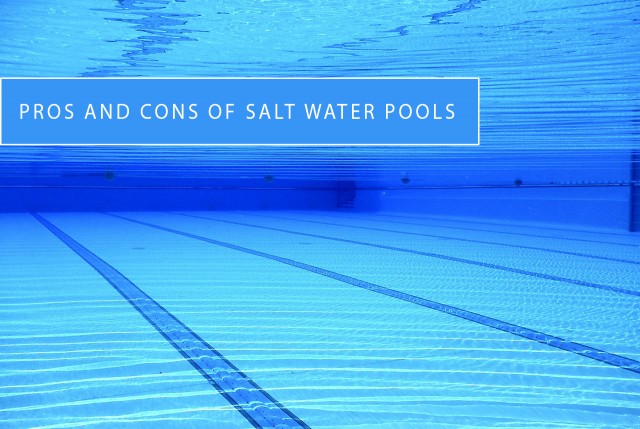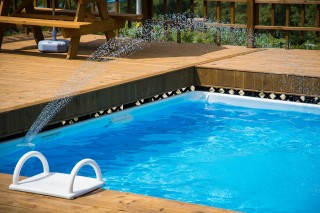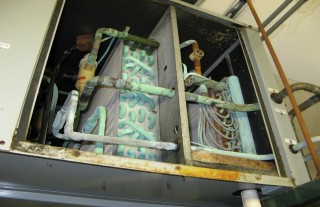Pros and Cons of Salt Water Pools
According to some, swimming in a mild saline solution can be "much like taking a shower in soft water."2 One of the draws of salt water pools is the idea they are more natural, and better for you and your skin. The smell of chlorine can be a draw to other alternatives of pool filtration systems as well. One of the common misconceptions of a salt water pool, is that it is chlorine-free, which is not entirely accurate. It simply utilizes salt that has been added, as well as a chlorine generator, opposed to adding chlorine directly to the pool. We've compiled a list of pros and cons to help people understand the risks, and possible benefits, of salt water pools.
Pros:
Less Storage of Auxiliary Chlorine – Although you still need to keep auxiliary chlorine in stock, the use is less.
Safer – When it comes to storing or transporting chemicals, having larger quantities of chlorine tablets or in liquid form can be potentially dangerous.
Cons:
Higher Costs – Although there can be a long term savings in reduced chlorine usage only; the other chemicals required along with the maintenance expense and building and equipment deterioration can result in a net loss.
Possible Corrosion – Salt causes equipment and facility corrosion, requiring frequent, and often expensive, maintenance.
Not Chemical-Free – Salt water generators can be temperamental from time to time, often requiring the addition of auxiliary chlorine to maintain a residual. Salt also increases the pH of the water, requiring frequent addition of chemicals to lower the pH. High phosphate levels, if not carefully managed, will damage the salt system, other pool systems and the pool itself.
Does Not Do Well In Colder Environments – These systems do not generate chlorine well in cold environments, causing increased salt usage during colder periods. This may not be as much as an issue for pools that are not operated during cold periods or winter months.
All public pools are required by code to maintain a chlorine residual of 1 to 3 ppm, with or without a chlorine system, so if salt has been added to the water, the level of chlorine does not decrease. Some municipalities have gone as far as to ban using salt water in pools that drain into a sewer system, for fear of added salt deposits into aquifers and waterways.
In recent years, salt water systems have been removed more often than they have been installed. The reasons for removal are often equipment and building deterioration and high maintenance and auxiliary chemical costs. Whether or not you end up using chlorine or salt water pools, all pool water that is properly balanced feels better.
References:
https://www.livestrong.com/article/233744-chlorine-vs-salt-water-swimming-pools/
https://www.poolpricer.com/pros-and-cons-of-salt-water-pools/
2 https://www.tripsavvy.com/about-chlorine-generators-2677869




